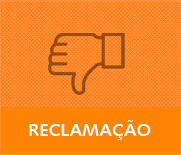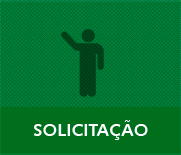Compartilhar:
President Dilma explains “Medical Act” vetoes
Criado em 11/07/13 20h21
e atualizado em 16/07/13 14h06
Por Yara Aquino
Edição:Graça Adjuto / Carolina Pimentel / Lícia Marques
Fonte:Agência Brasil
Brasília – A controversial bill known as the Medical Act (“Ato Médico”), which introduces regulatory changes in healthcare activities in Brazil, had some items vetoed by President Dilma Rousseff. The line-item vetoes removed restrictions on some procedures so that they can be performed by health care providers other than doctors. Among the procedures are injections (shots) and prescription of orthosis and prosthesis devices.
The government explained the veto on having only doctors give shots saying that it could cause bottlenecks in public and private healthcare services, especially vaccination campaigns: “Although injections often depend on medical evaluation, in some cases the procedure can be performed by other healthcare workers,” said a note on the Palácio do Planalto blog (Brazil's White House blog).
As for orthosis and prosthesis prescription, the veto was intended to avoid a negative impact on health services in general: “This is a procedure that can be performed by other providers who are not doctors and has already been recognized as such by the public healthcare system [“Sistema Único de Saúde – SUS”] and is part of the curriculum of several undergraduate courses in healthcare,” the government explained.
President Dilma has also vetoed one of the most controversial provisions in the bill, one that sparked widespread protests by a wide range of healthcare workers including physical therapists, nurses and psychologists. The original provision was designed to limit diagnosis responsibilities to doctors only. The item was vetoed on grounds that it would have led to the suspension of many SUS programs that depend on an integrated collaboration of healthcare workers from several different areas and which often involve diagnosis by non-doctors.
According to the president of the Federal Nursing Board (“Cofen”), Márcia Krempel, vetoing those items will be beneficial to the population and the public healthcare system. “With the vetoes, SUS will continue to operate in its non-hierarchical framework, where all healthcare professionals are equally valued and important," Krempel declared.
The Federal Psychology Association (“CFP”) was also delighted at the news. According to the association, if the original provisions had been enacted, psychologists “would no longer be allowed to diagnose mental disorders”.
“This is why the CFP welcomes president Dilma's decision. By vetoing those items, she is protecting the public healthcare system and the integrated approach of healthcare professionals. The president made it clear that passing the bill 'could have harmed public policies in healthcare, as well as posing a high risk of turning the whole issue into a legal matter.'”
Edition: Graça Adjuto / Carolina Pimentel / Lícia Marques
Translation: Mayra Borges / Allen Bennett
Deixe seu comentário





